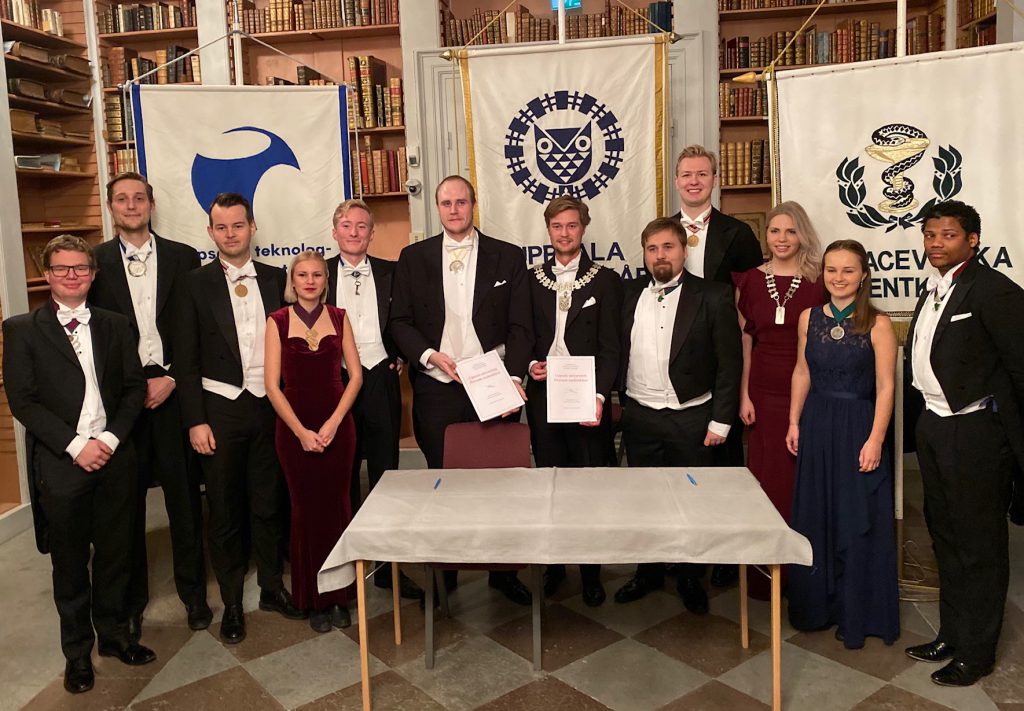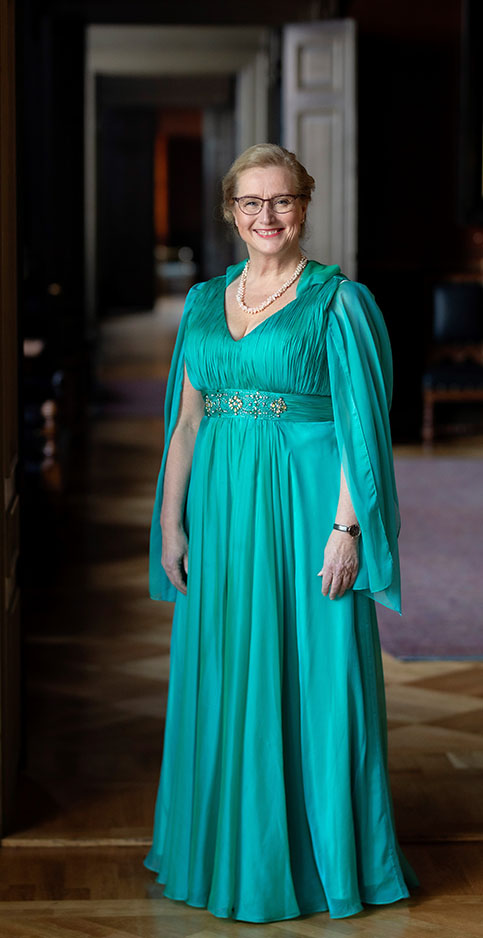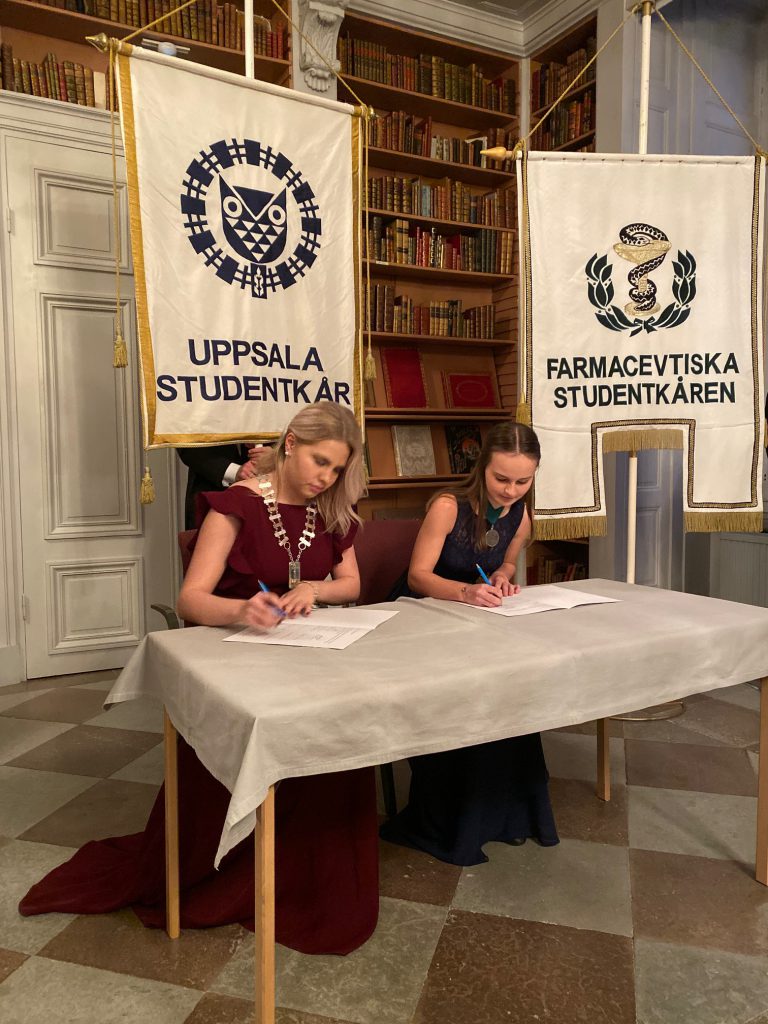2019 is drawing to a close – another eventful year in the world and at Uppsala University. The January Agreement gave us a government and has influenced politics in Sweden ever since. The climate crisis, Brexit and growing political unrest in various parts of the world have dominated the news. For the first time, we urged students on foreign exchanges to come home, because of the reports from Hong Kong.
Yet, though overshadowed by the headlines, progress is being made around the world, often on the basis of science. Every day at Uppsala University, new knowledge is created that helps to make the world a better place.
A great deal happens at our large University in the course of a year. Our research remains at the forefront. We have done well in the competition for research funding. As usual we were successful when the Swedish Research Council shared out project grants. Particularly in technology and natural sciences, and in humanities and social sciences, Uppsala received a high proportion of the available funding. We also did well in the Swedish Cancer Society’s call. Recently, three new Wallenberg Academy Fellows were approved. At international level, we received several large EU grants during the year. It is particularly pleasing that Europe’s research and development on future batteries is led from Uppsala University in the Battery 2030+ initiative.
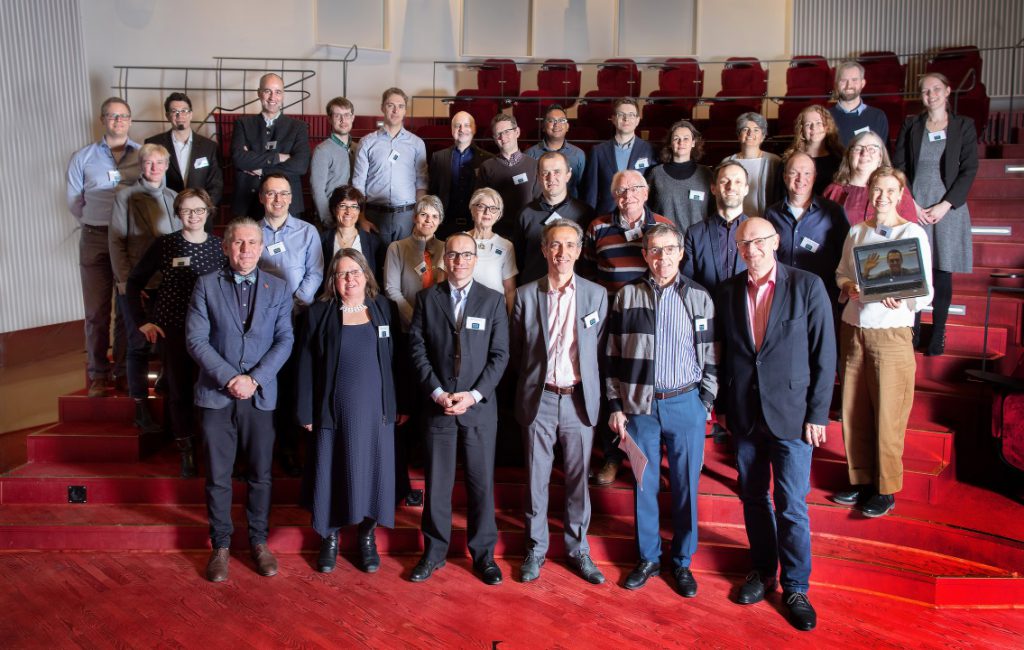
Battery2030 group visits Uppsala 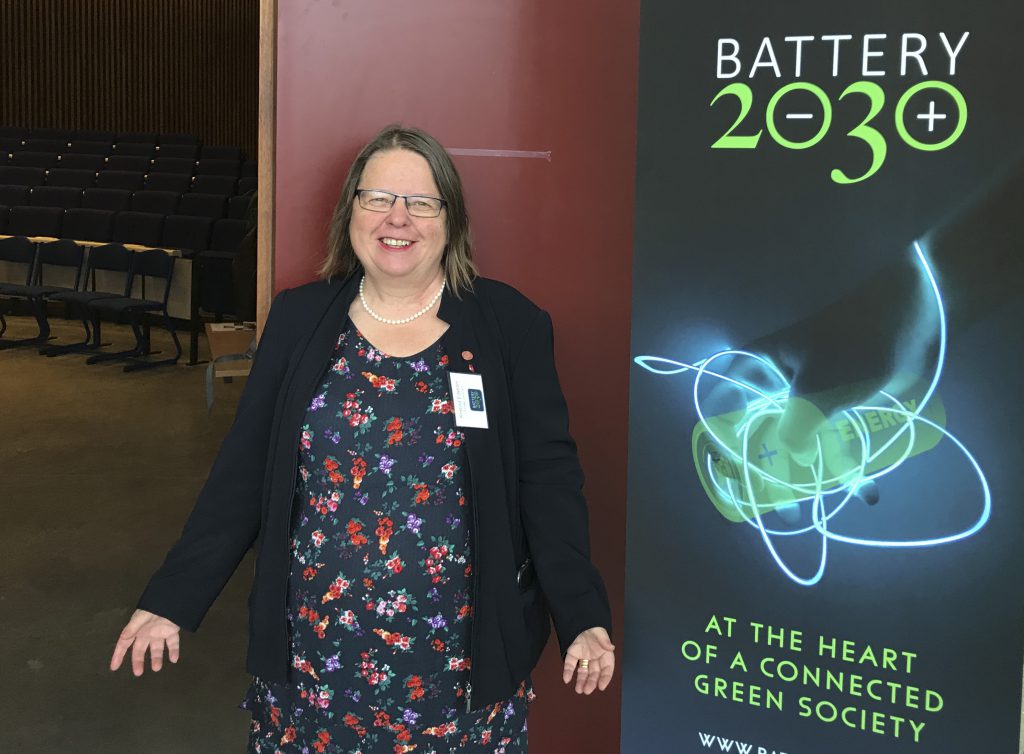
At home, we are seeing more multidisciplinary environments develop, for example in research on sustainability, antibiotic resistance, artificial intelligence, digital humanities and women’s mental health. CIRCUS offers a platform for interdisciplinary research on culture and society. The opportunities for cross-disciplinary initiatives are almost unlimited at our broad University. On Campus Gotland, we are getting underway with a multidisciplinary graduate school.
The internationalisation of education continues and we have an increasing number of students from other countries. The number of applications from fee-paying students increased more than at any other Swedish higher education institution – by all of 50 per cent. More new international Master’s programmes will be starting next autumn, so the expansion is likely to continue. Uppsala University won the Erasmus+ Actor of the Year distinction for systematic and successful work on international exchanges. One measure that attracted special attention from many quarters was the climate scholarships, which enabled exchange students to travel to their destinations by climate-friendly transport.
The students’ unions and nations are important for Uppsala University. We are pleased that the unions have formalised their close mutual cooperation – this will further strengthen student influence. We support the students’ efforts to draw attention to the erosion of resources for higher education. We are also pleased that the cooperation between students’ unions and nations is progressing well following the joint investigation that was presented during the spring.
Work on the new Ångström Laboratory has continued and the first part, a new wing, is due to open next year. In this context, the Development Plan 2050 project is important for the future development of our city. The report that has been produced will now be discussed within the University to benefit from everyone’s thoughts. Consultations are due to be completed in March, after which the roadmap to the future can hopefully be finalised. The investments in our campus environments continue. Hardly had the partially remodelled Carolina Rediviva reopened before Gustavianum closed for much-needed renovation.
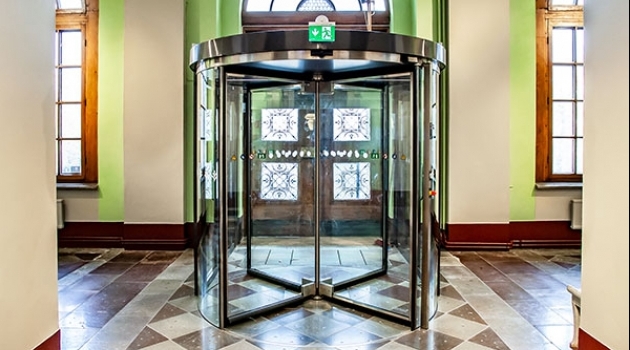
Our task in the University management is about creating conditions for the continued success of our University. This year we have benefited from the valuable advice of our newly established International Advisory Board, which visited us in the summer. Two major projects have just crossed the finishing line. After a process that started three years ago, the University Board has approved the University’s new rules of procedure. This document sets out the structure of the University’s governance – with management based on collegiality and active student influence – and clarifies roles and responsibilities in the University. At the same meeting, the University Board also adopted Uppsala University’s new mission statement (Mission, Goals and Strategies). The University’s overall goal of course remains unchanged: to conduct education and research of the highest quality and relevance. One change is that a number of medium-term development targets are formulated; another is that the strategically prioritised areas that were previously described in separate programmes – for Campus Gotland, collaboration, equal opportunities, internationalisation, quality and sustainable development – are now integrated in the Mission, Goals and Strategies.
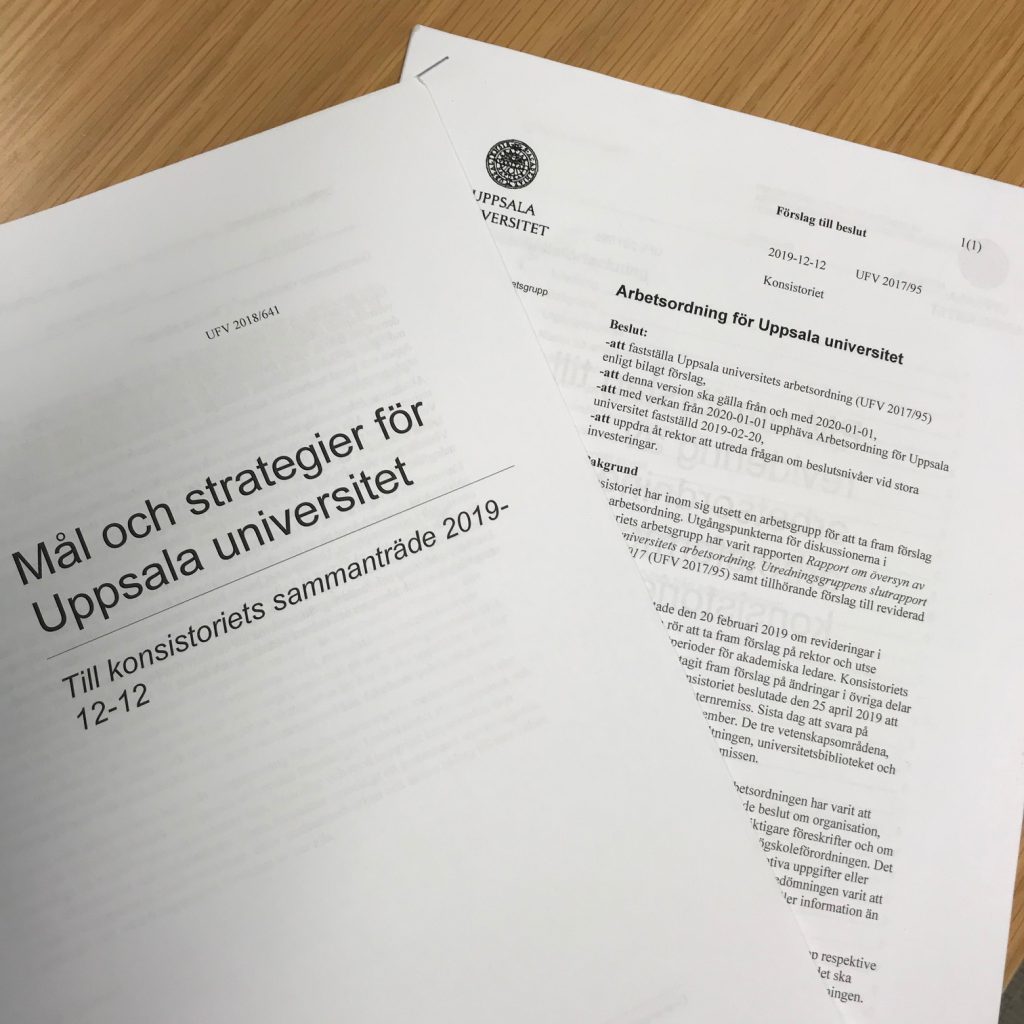
Another important activity this year was to formulate Uppsala University’s proposals and comments on the government’s upcoming research bill. In our input, we particularly highlight the need for enhanced funding for vital but increasingly costly research infrastructure.
We have also started a review of our Appointment Regulations – the document that governs the forms of employment that exist at the University and arrangements for recruitment and career paths. Now we are taking the opportunity to move forwards when it comes to attracting the best researchers and teachers.
While world leaders face increasing expectations to agree on climate measures, we as a university are working to reduce our own climate footprint. The University’s environmental plan is under revision to ensure that our environmental ambitions are at the cutting edge. We welcome the great interest and commitment from staff and students. As usual, though, we would like to recall that the best contribution the University can make to a sustainable world is our research on climate leadership, energy technologies, battery storage, democracy, integration, antibiotic resistance and many other areas. Equally important are the many young people who graduate every year and leave the University to contribute by their expertise to the development of society.
The University can look back on yet another successful year and forward to an exciting 2020. We look forward to the research bill towards the end of the year, which we hope will give us even better conditions for long-term development and for helping to create a better world.
Many thanks to all of you – staff, students, friends and partners – who together contribute to the University’s success. We now wish you all an enjoyable and relaxing break over the holidays.
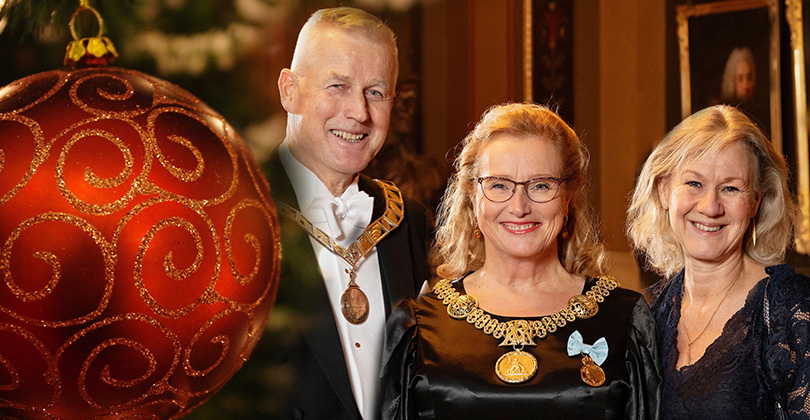
Eva Åkesson, Anders Malmberg, Caroline Sjöberg


